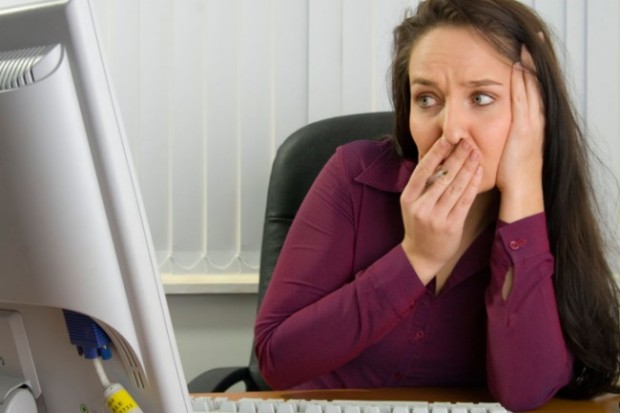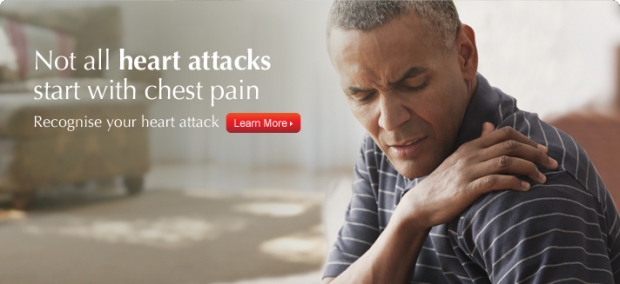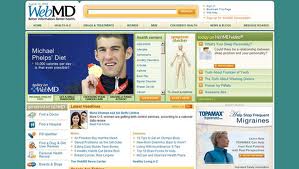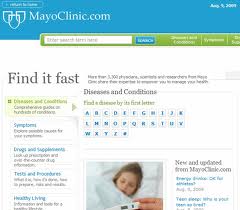Breast Cancer..Not Every Woman Needs to Follow Angelina Jolie
Ever since the much-publicised double mastectomy by the famous Hollywood star in May 2013, there has been quite a bit of confusion by women as to whether removing both breasts surgically is the only answer to avoid getting breast cancer. Even today, my colleagues are still being asked this question frequently.
Here are some facts regarding this:
- Most breast cancers (90%) are not inherited.
- The inherited form, due to alteration in the BRCA genes, account for 5-10% of cases.
- Routine screening by BRCA testing is not recommended. The blood test is expensive, costing anywhere between USD 1000-4000 and takes about three weeks before results are known.
- BRCA testing is usually done where there is a related history of breast cancer. Indeed, there are specific indications for doing this test, e.g for women with two first-degree relatives with breast cancer below 50. For a full list of indications, see here.
What happens if the BRCA test is positive? As such people have a very high chance of getting cancer of the ovaries and breasts, there are a few options available. It does not necessarily mean that double mastectomy is the only way out. Other options include taking medications, more intensive and regular breast cancer screening and having both ovaries removed before the age of 40. The right decision involves the patient being fully informed and playing an active role in the decision-making process.
Whatever the decision, its important to execute it immediately as procrastination is the worst enemy. Jolie’s case highlights the importance of knowing one’s family history and learning one’s cancer risks in order to address them proactively.
Ballooning Healthcare Costs
The prices of things are going up again (they call it inflation), but probably in no other area of industry is the inflation rate going up relentlessly year after year in the region of 10-15%. Take a look here:
The way things are going, this cartoon may not be that funny at all:
Here’s my tips on how you can cut your healthcare costs (short of not receiving any!):
Coffee Causes Cancer…No!
Around one in 10 British adults mistakenly think coffee causes cancer,so says a survey carried out by the World Cancer Research Fund (see here). Nothing can be further from the truth – repeat, drinking coffee does not cause cancer. In fact, the benefits of coffee have been largely understated. Among the benefits include:
1. It contains powerful anti-oxidants, like chlorogenic acid and melanoidins (especially in roasted coffee beans), both of which confer proven health benefits.
2.Reducing the incidence of Parkinson’s Disease and Alzheimer’s. Read “A Cup of Coffee a Day will Keep Alzheimer’s Away”.
3.Protecting against diabetes. Moderate consumption may lower the risk of type 2 diabetes in younger and middle aged women.
4.Preventing liver disease and the formation of liver and kidney stones.
5. Promoting alertness, attentiveness, and wakefulness.
But its not all good and no bad. Drinking excessive amounts (more than four cups a day) has been shown to accelerate osteoporosis as well as increase blood pressure, palpitations and even increase the risk of hardening of the arteries (a process called atherosclerosis). In some, coffee can cause heartburn, or GERD(gastro -esophageal reflux disease).
An important point to note is that there seems to be a health hazard in drinking unfiltered coffee (as in Turkish coffee and kahawa) as it raises blood cholesterol. Filtered coffee, as in instant coffee, does not do so, as diterpenes, responsible for raising cholesterol, are removed by filtration.
What about heart disease? The verdict’s not in just yet..on one hand, diterpenes cause a rise in cholesterol and homocysteine but this seems balanced by the beneficial anti-oxidant properties. As of now, there is no convincing evidence that coffee leads to heart disease.
Bear in mind that this discussion is based on just pure plain coffee. The scenario changes quite a bit with additives like milk, cream and sugar. For one thing, a cup of latte at Starbucks can contribute about 260 calories (as opposed to 0 calories in plain coffee). This is not to mention the health risks of added fats (and cholesterol) and sugar.
Related articles
- So, Is Coffee OK, Doc? (doctor2008.wordpress.com)
Back Pain? That Could Be A Heart Attack.
I was prompted to write about this when, in the last week or so, a couple of patients presented with upper back-pain in between the shoulder-blades and dismissed them off as ‘muscular aches’. In both cases, they turned out to be impending heart attacks. So what kind of symptoms are produced when the heart’s in trouble?
The reality is not all heart attacks happen suddenly and dramatically as in a TV drama where you clutch your chest in pain and fall to the ground. In many instances, the warning symptoms appear but are ignored because they appear in unusual parts of the body and may fade off after a while, only to reappear again especially when the heart is stressed.
The classical symptom is that of central chest-pain or pressure, not unlike someone standing on your chest. But sometimes, the pain can be in unusual locations include jaw or teeth pain, leading to a visit (wrongfully) to the dentist. An alert dental surgeon can recognise the differentiating features and refer the patient on to the cardiologist for urgent attention.
Another location for heart-attack pain can be the so-called interscapular area (the part between the shoulder-blades), even without chest-pain. Often, the pain can be excruciating with possible pain-free intervals, leading one to a false sense of security with disastrous consequences; because time is crucial in such circumstances : the well-known ‘golden hour‘, named because early treatment during an evolving heart attack can mean the difference between life and death.
Pain need not always be present as a heart attack develops. Especially in diabetics, breathlessness can be the only symptom. Of particular note is progressive deterioration of stamina, such as walking up a staircase.
Getting treatment within an hour of a heart attack cuts your risk of dying from it in half, so it is important to get to the nearest Emergency Department of a large hospital in double-quick time. Sometimes it may be better to rely on one’s own transport than to wait for an ambulance if that’s going to save time.
Are there any useful measures to do while waiting to receive medical attention? Anecdotally, several maneuvers have been promoted on the Internet, many without a proven basis. There’s certainly no place for home remedies! Sitting up and facilitating breathing (loosening tight clothing) and at the same time calming the patient does help as it is well-known that anxiety aggravates the heart. If aspirin is available (even the ones for headaches), putting a tablet under the tongue will help to thin out blood and prevent clots from developing.
Personally, I have encountered several instances where people hesitate to go to the hospital for fear of embarrassment in case it turns out to be a false alarm. Others deliberately neglect to call help, fearing the worst, but hoping their inner fears may be wrong. In any case, an important rule of thumb is that it is better to be proven wrong at the hospital than to miss a heart attack. No medical staff is going to chastise you, for sure, if you’re wrong.
Related articles
- 20 Classic Heart Attack Signs Never To Ignore (positivelygood.net)
On Death – by Alexander the Great
On his deathbed, it was purported that Alexander the Great summoned his generals and told them of his three last wishes:
1. The best doctors should carry his coffin;
2. The wealth he has accumulated (money, gold, precious stones) should be scattered along the procession to the cemetery, and
3. His hands should be let loose, hanging outside the coffin for all to see.
Surprised by these unusual requests, the generals asked him to explain and this was his reply:
1. I want the best doctors to carry my coffin to demonstrate that, in the face of death, even the best doctors in the world have no power to heal.
2. I want the road to be covered with my treasure so that everybody sees that material wealth acquired on earth, stays on earth.
3. I want my hands to swing in the wind, so that people understand that we come to this world empty handed and we leave this world empty handed after the most precious treasure of all is exhausted, and that is TIME. TIME is our most precious treasure because it is LIMITED. We can produce more wealth, but we cannot produce more time.
True or not, these quotes do carry significant lessons in life.
As a doctor, I am particularly attracted to the first point. Sometimes, we do face situations where relatives do expect us to prevent or postpone the inevitable; not only is this impossible but it results in humbly putting doctors and care-givers in their place..that the Almighty proposes and man disposes. Yes, and one’s time is finite.
Doctors are not God and many doctors, including myself, live by this credo:
“To cure sometimes, to relieve often, to comfort always”
-ascribed to Hippocrates (Greek physician, 460-370 BC)
Strike Away Stroke..FAST
Its World Stroke Day..so it might be timely to reiterate what I consider the most important point in handling someone who is suspected of suffering from ‘brain attack‘ – acting FAST.
 Of the four points, perhaps the last is most crucial in determining the chances of survival and the probability of recovery. Every second delayed in receiving treatment means more brain cells die . The thing about the brain is once cells die, they do not get replaced, unlike other organs in the body like the liver.
Of the four points, perhaps the last is most crucial in determining the chances of survival and the probability of recovery. Every second delayed in receiving treatment means more brain cells die . The thing about the brain is once cells die, they do not get replaced, unlike other organs in the body like the liver.
Nowadays, its possible to dissolve the clot causing the stroke (the ischemic variety, not the bleeding form) by injecting a clot-dissolving medicine into the veins; but to re-emphasize, time is of utmost importance.
One might wonder – how do you prevent stroke in the first place?
A study conducted in England by four researchers, one of whom came from Malaysia and was a classmate of mine, showed quite conclusively that one could reduce the chances of getting stroke by 50% if one adopted the following measures:
- not smoking
- being physically active
- limiting their alcohol intake to not more than 14 units a week
- fruit and vegetable intake of at least five servings a day.
Apart from the above, it is well-known that the presence of the following risk-factors also predispose to stroke: high blood pressure, diabetes, high cholesterol, atrial fibrillation (irregular heart-beats), heart disease and certain blood diseases which cause clotting.
As they say, prevention is better than cure.
Related articles
- Atrial Fibrillation – Part 1 – What is it? (myheartnet.wordpress.com)
Housework Is NOT Exercise
People who count housework as exercise could be fooling themselves, research has suggested. Until now, studies have suggested housework counts towards a weekly round-up of moderate exercise activity.Such housework activities included gardening, DIY, vacuuming or cleaning.
In a study published in the journal BMC Public Health, experts found that those who counted housework as exercise were actually heavier than people choosing other forms of exercise. The study, published in more detail here went on to say that such activity may not be sufficient to provide all of the benefits normally associated with meeting the physical activity guidelines. In other words, the energy expended during housework was insufficient to burn off enough calories to make one maintain or lose their weight.
Personally, I’ve maintained for a long time that when it comes to exercise, in particular heart (cardiovascular) fitness, the intensity and duration should be any form of continuous strenuous physical activity which should be at least 25 minutes duration three times a week. Even the so-called weekend ‘jogging’ does not meet this criteria if there is no midweek activity put in place.
Related articles
- Housework ‘not strenuous enough’ (bbc.co.uk)
Get A Second Opinion After Seeing Dr Google
I wasn’t too surprised reading the other day that health-related matters take up 2% of all queries on internet search engines. In fact, I thought the figure would be higher, judging from day-to-day conversations with patients.

Reading too many Health web-sites may lead to one imagining having various dire diseases, resulting in cyberchondria.
The big question of course is: how reliable are the facts dished out on the Internet? Obviously, its important that these websites are reliable and churn out accurate information. Even so, healthcare information is complicated by a few other factors not related to the reliability of these websites, as explained later.
How do you identify reliable websites? First of all, as a yardstick, websites sponsored by the governments, not-for-profit health or medical organizations, and university medical centers are the most reliable resources on the Internet. Sites supported by for-profit drug companies, for instance, who may be trying to sell you their products, are usually not your best option. Also note that medical info changes rapidly with time and a look at the dateline of the article is important. Here are a few such sites:
Medlineplus.gov – sponsored by the National Institutes of Health and managed by the U.S. National Library of Medicine, MedlinePlus provides information on more than 900 diseases and conditions in their “Health Topics” section, and links to other trusted resources.
WebMD provides a wealth of health information and tools for managing your health from an award-winning website, which is continuously reviewed for accuracy and timeliness.
MayoClinic.com – owned by the Mayo Foundation for Medical Education and Research, this site is produced by more than 3,300 physicians, scientists and researchers from Mayo Clinic, and provides in-depth, easy-to-understand information on hundreds of diseases and conditions, drugs and supplements, tests and procedures.
Sometimes,even with reliable trustworthy information, its rather difficult for the untrained public to give due weightage to the complex info that is being bombarded onto them. For instance, when reading the side-effects of a particular medication, it is difficult to appreciate that not all the listed side-effects will invariably occur when one consumes the drug.
This is why its better to consult a doctor to obtain clarification. It takes years of medical training to adequately decipher fully what’s found on web health-sites and to fully appreciate its implications.
In fact, the over-reliance of info on the internet has given rise to a new condition called cyberchondria (aka internet self-diagnosis) – this refers to the practice of leaping to dire conclusions while researching health matters online. If that severe headache haunting you in the morning led you to the Web search-engine and a search on ‘headaches’ led to ‘brain tumours’ or ‘meningitis’, people tend to look at the first few results in the search-engine which forms the basis for them to probe further till they are convinced that they have a brain tumour. The likely diagnosis is probably cyberchondria than anything else! The phenomenon has become so pervasive that Microsoft did its own study on the causes of cyberchondria way back in 2008.
Strike Away Stroke FAST
Some readers of this blog asked what they can do to prevent a stroke from hitting them. Plenty!
A very recent research study just released  in the British Medical Journal by 4 authors, one of whom is a Malaysian classmate who now works in the UK, reveals 4 things that people can do to reduce the chances of getting a stroke by half.
in the British Medical Journal by 4 authors, one of whom is a Malaysian classmate who now works in the UK, reveals 4 things that people can do to reduce the chances of getting a stroke by half.
The study, conducted in England involving 20,000 people over 11 years, showed that they could reduce the chances of getting stroke by 50% if they did all the following life-style measures:
- not smoking
- being physically active
- limiting their alcohol intake to not more than 14 units a week
- fruit and vegetable intake of at least five servings a day.
Apart from the above, it is well-known that the presence of the following risk-factors also predispose to stroke: high blood pressure, diabetes, high cholesterol, atrial fibrillation (irregular heart-beats), heart disease and certain blood diseases which cause clotting.
One does need to realise, however, that some risk-factors cannot be changed or eliminated. Try changing your age (the chance of having a stroke approximately doubles for each decade of life after age 55), sex (more common in men), your relatives( your stroke risk is greater if a parent, grandparent, sister or brother has had a stroke) or the fact that you have had a previous stroke or transient ischemic attack (TIA, or warning strokes)!
The whole idea of getting away from stroke is to eliminate as many of the above risk-factors as possible and to lead a healthy lifestyle.
See my related article “Mending A Stroke In Time”.
The American Who Woke Up Speaking Swedish – Mystery Solved!
Last month, it was reported that an American, Michael Boatwright was discovered unconscious in a Motel 6 room in California , but when he awoke could not remember anything about himself, recognize even his own reflection, nor how to speak English.
Even though his driver’s license says he was born in Florida and served in the U.S. Navy from 1971 to 1973, Boatwright has no memory of his life to date and now answers only to Johan and converses in Swedish to doctors with the help of an interpreter.
This brings to mind several similar cases in the past where apparently normal strangers have been seen to be aimlessly walking around in total amnesia, with no recollection at all on their name or background.
As in this case, the cause has been attributable to a medical condition called transient global amnesia – a sudden, temporary episode of short-term memory loss that cannot be attributed to conditions like epilepsy or stroke (which are known causes of temporary amnesia).
What causes this condition? Basically, any sudden stress to the brain, whether in the form of sudden immersion in cold water, physical strain, mental stress, head injury or even sexual intercourse. They tend to occur in those over 50 and who suffer from migraine. It is thought that in all of the above conditions, there is a temporary constriction of the blood vessels going to the brain, causing temporary brain malfunction.
The good news is that the condition is temporary and usually resolves within 24 hours. No treatment is required and the condition seldom recurs.
Back to Michael Boatwright. It turns out that the American had lived in Sweden in the 1980s where he learnt to speak good Swedish and was known as Johan Ek. He was identified by members of the Swedish branch of the Society for Creative Anachronism, where he was a keen participant of the group’s jousting team. So, mystery solved..





















